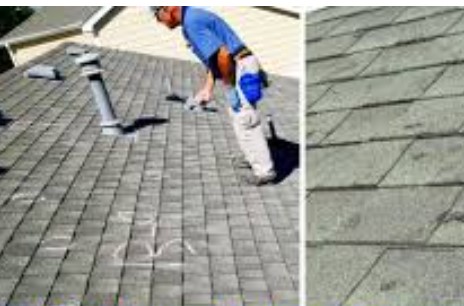The increasing interest in sustainable energy solutions has led many homeowners to consider solar panel installations. While solar panels from O’LYN Roofing of Wellesley provide numerous environmental and financial benefits, their installation is a complex process that requires careful consideration and planning. Roofing contractors ensure solar panels are installed safely, efficiently, and effectively. We will explore roofing contractors’ various responsibilities and contributions in solar panel installations, highlighting their importance in achieving successful and long-lasting results.
Assessing Roof Suitability
Evaluating Structural Integrity
Before solar panels can be installed, the structural integrity of the roof must be evaluated. Roofing contractors are responsible for inspecting the roof to ensure it can support the additional weight of the solar panels. This assessment involves checking for damage, weak spots, or areas needing reinforcement. A thorough evaluation helps prevent potential issues, such as roof collapse or damage, once the panels are installed.
Determining Roof Condition
In addition to assessing structural integrity, roofing contractors also evaluate the roof’s overall condition. This includes examining the age of the roofing materials, checking for leaks, and identifying any necessary repairs. If the roof is nearing the end of its lifespan or has significant damage, it may need to be repaired or replaced before solar panel installation. Ensuring the roof is in optimal condition helps maximize the lifespan and efficiency of the solar panels.
Ensuring Proper Installation
Coordinating with Solar Installers
Roofing contractors often work closely with solar installers to coordinate the installation process. This collaboration ensures that the panels are installed most effectively and efficiently. Roofing contractors provide valuable input on the best placement of the panels, considering factors such as roof slope, orientation, and shading. By working together, roofing contractors and solar installers can optimize the performance and efficiency of the solar energy system.
Securing Mounting Systems
The mounting system is a critical component of solar panel installations. It must securely attach to the roof to prevent panels from shifting or dislodging. Roofing contractors are responsible for installing and securing the mounting system, ensuring it is properly anchored and aligned. This involves drilling holes into the roof and sealing them to prevent leaks. Proper mounting system installation is essential for the safety and longevity of the solar panels.
Read also: The Role of Interior Designers in Home Makeovers
Maintaining Roof Integrity
Preventing Roof Damage
One of the primary concerns during solar panel installation is preventing damage to the roof. Roofing contractors use their expertise to ensure the installation does not compromise the roof’s integrity. This includes using appropriate materials and techniques to secure the panels and mounting system without causing leaks or structural issues. By taking these precautions, roofing contractors help maintain the roof’s functionality and prevent costly repairs.
Managing Weather Conditions
Weather conditions can significantly impact the installation process. Roofing contractors are crucial in managing these conditions to ensure a successful installation. This involves scheduling the installation during favorable weather and taking necessary precautions to protect the roof and panels from adverse conditions, such as heavy rain or strong winds. Proper weather management helps prevent installation delays and potential damage to the roof and solar panels.
Providing Ongoing Maintenance
Regular Inspections
Regular inspections are essential once the solar panels are installed to ensure their continued performance and the roof’s integrity. Roofing contractors provide ongoing maintenance services, including routine inspections to check for any issues or damage. These inspections help identify and address potential problems early, preventing more significant issues. Regular maintenance ensures that the roof and solar panels remain in optimal condition.
Addressing Repairs and Upgrades
Over time, roofs and solar panels may require repairs or upgrades. Roofing contractors are responsible for addressing these needs, ensuring the roof remains structurally sound and the solar panels continue operating efficiently. This includes repairing any damage caused by weather, wear and tear, or other factors. Additionally, roofing contractors can assist with upgrades, such as adding more panels or enhancing the mounting system to improve performance.
Enhancing Energy Efficiency
Optimizing Panel Placement
The placement of solar panels significantly impacts their energy efficiency. Roofing contractors are key in optimizing panel placement to maximize energy production. This involves analyzing the roof’s orientation, slope, and potential shading to determine the best locations for the panels. Roofing contractors help ensure the solar energy system generates the maximum energy possible by optimizing placement.
Integrating with Roofing Systems
Integrating solar panels with existing roofing systems can enhance overall energy efficiency. Roofing contractors can recommend and install reflective roofing materials or additional insulation to complement the solar panels. These measures help reduce heat absorption and improve the home’s overall energy efficiency. Roofing contractors create a more sustainable and efficient home by integrating solar panels with other energy-saving features.
Conclusion
Roofing contractors play a vital role in installing and maintaining solar panels. Their responsibilities include assessing roof suitability, ensuring proper installation, maintaining roof integrity, providing ongoing maintenance, and enhancing energy efficiency. By collaborating with solar installers and leveraging their expertise, roofing contractors help ensure that solar panel installations are safe, efficient, and long-lasting. Properly installed and maintained solar panels provide significant environmental and financial benefits and contribute to the home’s overall sustainability and efficiency.







